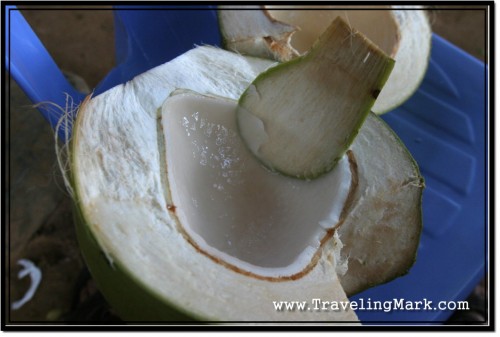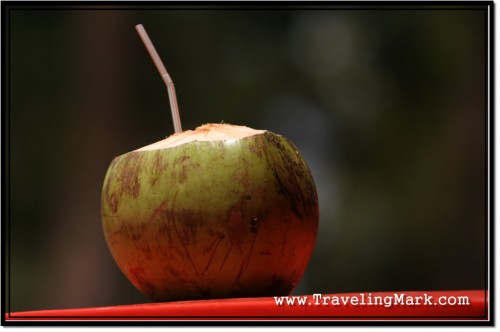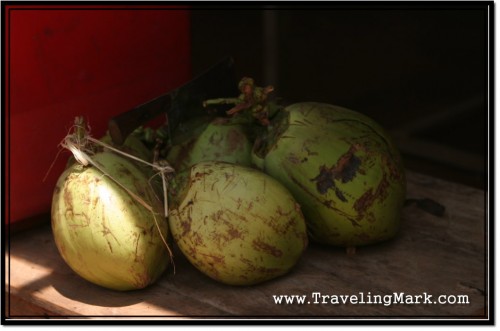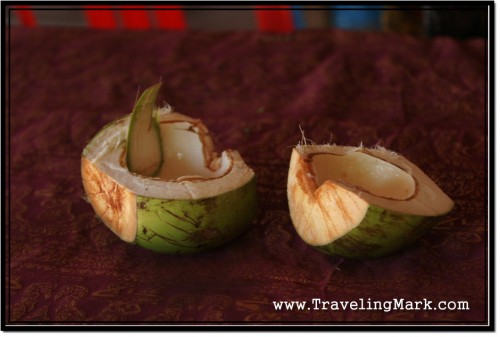One of the reasons why Cambodia has grown to become a popular tourist trap is because it’s cheap. At least that’s what most people who visited the country claim. But let’s take a closer look at some undisputed facts before we jump into conclusion and find a more reliable answer to how cheap Cambodia really is (or whether it is cheap at all).

Is Cambodia Cheap?
Let me get ahead of myself and say it right up without beating around the bush – Cambodia is NOT cheap. Just because most visitors are able to spend less money in Cambodia than they would have in, say Canada, the United States or Germany, it doesn’t mean that Cambodia is cheap. As a matter of fact, vast majority of articles for sale in Cambodia are more expensive than in any of the three mentioned countries (or elsewhere in the world). Since no serious manufacturer would open a plant in a country like Cambodia, where quality of workmanship is so low and work ethic nonexistent, very little is manufactured there. As a result, most items of everyday use must be imported from abroad. Personal hygiene products are a good example. Thinking you could buy a tub of Colgate tooth paste for cheap in Cambodia would set you up for a big surprise.
Similarly, good luck trying to buy a Snickers bar for a price similar to that in western countries. Yet don’t even get me started on electronics or motor vehicles. Check out the classified ads for prices of overused, 30 year old beaters. They sell for the price of brand new sedans in Canada. Electronics? Thinking of replacing that broken camera that was stolen while you were visiting Cambodia? Prepare to shell out on average 40% more than you would in your home country.
Genuine Products in Cambodia
But that’s only the beginning. If you buy a camera from a retailer in a western country, you can be pretty sure you are buying a genuine product and you will get a reasonable customer service (sometimes even a time-limited no questions asked money back guarantee) should the product not perform to your expectations. Not only are these unheard of in Cambodia where similar product would cost much more, you would have to consider yourself blessed if you lucked out enough to obtain a genuine product for your money. And if the casing is genuine, than at least some parts of what you buy will be stripped off and replaced with cheap, generic substitutes. That’s real Cambodia so really – it’s not cheap there. The perceived cheapness most people experience is just a skewed reality that camouflages itself as cheapness, but in reality it’s not.
$2 Burger in Cambodia vs $6 Burger in Canada
Since I’m from Canada, the best way for me to compare products available in Cambodia is with those available in Canada. The example below can be used for any other western country, just replace “Canada” with the name of your home country and you’ll get the desired result.
Let’s say (for illustration purposes) a burger in Canada costs $6. Then you come to Cambodia and find them selling burgers for $2. An average person who buys that $2 burger in Cambodia would end up writing a blog post, or telling their friends that Cambodia is cheap. But I’m not your average person. I like to disclose the whole truth to my friends and readers of my blog, not just the convenient part, so let me break the cost of each burger down a little:
Cost of Hygiene
In Canada, even though the burger is perceived as more expensive, you get certain guarantee of hygiene and freshness. If nothing else, at least before a license to handle food is granted, some form of inspection of premises is made (and can be done later on as well). You don’t have anything like that in Cambodia. Burgers can be sold out of a self made push-cart that’s parked with the swine overnight before it’s taken out to carry food. In conclusion:
- guarantee of hygiene in Canada – some
- guarantee of hygiene in Cambodia – none
Cost of Safe Ingredients
In countries like Canada, internationally recognized standards and principles are followed to ensure that the food safety requirements are met. The body that’s responsible for the enforcement of these rules is called the Canadian Food Inspection Agency. Before any edibles can be offers for sale, they must first be approved for sale by the CFIA.
It’s important to acknowledge that it is a dog eat dog world out there and everything seems to be about profits nowadays, yet still at least there are some institutions that would remove suspicious lines from shelves of grocery stores if there was a reason to believe they posed a health hazard to the public. This has happened many times and will continue to happen even if it means that the removal of products will push the company that provided them to the retailers to the brink of bankruptcy. Producers know it very well so food safety controls are rather rigorous. In conclusion:
- guarantee of freshness and safety of food in Canada – some
- guarantee of freshness and safety of food in Cambodia – none
Cost of Decent Service
The burger itself is merely a part of your experience buying it. In order to have it freshly made so you can munch on it, you must first order it with the server. And here’s where the real difference of a burger in Canada vs a burger in Cambodia comes to place.
Ordering a burger in Cambodia (or anything else for that matter), will undoubtedly require you to have to deal with a Cambodian national and that won’t go without a need to put up with their laziness, attitude and rudeness.
Ordering a burger in Canada requires an interaction with a server who – whether genuinely or by pretense – will usually be nice and respectful to you. This is a western way of life where customer is seen as a person important to success of a business so staff know they need to treat them with respect and dignity or the business fails. There are mood swings and other variables that can make the experience questionable, but for the most part, dealing with business attendants usually results in fair and dignified treatment. You pay $$$ for it, but you get it.
In Cambodia, on the other hand, you can get your burger for $2, but you will be served by a rude local who takes you for a pest. You will have to deal with their slowness as they scrape their feet against the floor pissed off that they have to serve you, you will have to deal with them barking at you if anything is unclear and you request clarification, you will have to put up with them laughing at you and not hiding that they are talking about you while they’re having themselves a good time at your expense and you will have nothing on your side to prevent that from happening.
Cambodians are very rude in general and nothing makes them happier than misfortune of another. This is true of all of them, including the monks. Even a monk will laugh his ass off at you if you bought a bus ticket with a dedicated seat and the seat is taken by somebody else even though it should belong to you. But then again, just because someone shaves their head and puts on a saffron robe, it doesn’t mean they become any less of a Cambodian. Afterall, Cambodians don’t get ordained for monks out of sheer interest to become a better person and do good. That’s not why they do it. They become monks when there are benefits for them in doing so – for example if becoming a monk will save them from going to jail or if it provides them with free education. But as soon as it becomes clear than the benefits of being a monk are over and leaving monkhood would be of more benefit, you’ll see them gone and back being their usual selves.
Cost of Customer Service
Shopping in Canada comes with some customer service. If you have any form of post purchase issue or complaint, there usually is a dedicated customer service representative, a manager on site, or if all else fails, at least bodies like the Better Business Bureau. Once money is spent, you still can often get either a replacement or a refund should something be wrong with the product purchased.
In Cambodia, once money is spent, consider it final. There is no accountability whatsoever. You pay for a silver pendant and find out it’s just some cheap metal – tough luck. Not only will there be no one to take care of the issue for you, you will be laughed at, mocked, pointed fingers at and threatened if you try to stand up for yourself.
I learned all about Cambodian customer service after my cell phone was stolen. I called Metfone’s customer service in a bid to cancel the number that went with the stolen cell phone. Since thieves got my phone, I at least wanted to make sure they couldn’t take advantage of the credit I had on the SIM card. But dealing with Metfone’s customer support revealed the true face of Cambodia.
Not only is calling Metfone customer service from Metfone phone numbers a paid call, their representatives are typical Cambodians – rude, self righteous bastards with holier than thou attitudes. Basically, after hours of wasting money being put on hold and passed from one person to another, I was told that everything was my fault for not paying attention, that they’re not there to take care of such requests and was called names for bothering them with this bullsh1t.
Cost of Enjoyable Experience
Let me get back to those burgers. One of the most important differences is that even though you would have spent $6 for your burger in Canada, you could sit in a facility where you could enjoy your bite without someone blowing smoke in your face, chewing with their mouth open so the leaves fall off the trees it’s so loud and disgusting, or being bothered to no end by beggars ready and willing to tell you to “f%$k off” or call you “stingy” if you refuse to give them money while they’re turning your dining experience into a nightmare.
Which Burger Was Cheaper?
Yes, you did need less money to buy a burger in Cambodia than you would in Canada, but it was not cheap. If you look closely at what you’re getting and how much you sacrificed and put at risk (including your health which will catch up with you one day, whether you like it or not), you did in fact overpay by shelling out those two bucks.
Cambodia is NOT Cheap
Cambodia is by no stretch of imagination a cheap country. Considering what you receive for your money, it is in fact ridiculously expensive. If you were to sacrifice all the good things Canada protects you as a consumer with, you could live in Canada for less than in Cambodia. Go sleep in a ditch with rats in a really dangerous part of a ghetto, eat filthy leftovers dumped in the bins by spoiled kids and you’ll see that Canada is really cheaper than Cambodia.
Why Is Cambodia Perceived as Cheap?
It is only because some people lower their standards of acceptance and willingly put their personal safety and health at risk that they are able to stay in Cambodia and spend less money than they would in their home country. And then they go around telling everyone that Cambodia is cheap, while conveniently leaving out the details of why exactly it seemed cheap.
One more time – if you take into account what you get for your money, Cambodia is a bad, bad value for money and an overall expensive country. Unless of course you take personal abuse, health hazards and endangerment of life as acceptable standards. Then it is cheap but that way it can be cheap in any country, including Canada.
Invaluable Advice
The best and the only way to avoid the mistreatment Cambodia greets visitors with is by not going to Cambodia. Khmer temples can be visited in other countries (such as Thailand or Laos) and outside of that, by giving Cambodia a pass, you won’t be missing out on much.
But if you absolutely must visit Cambodia, then stock up on everything you will need beforehand. Food and drink should be the only thing you’d buy locally but avoid buying them from local businesses that don’t have prices visibly posted. Instead, head over to larger chains (such as Lucky Mall) which are now starting to pop up all over the country to keep up with the demands of growing numbers of foreigners.
Scamming foreigners by selling them worthless counterfeit products is a very common and widely practised way to profit. While in most cases it would mean the loss of money, Cambodians push this a whole flight of steps further and won’t wink over potentially killing someone if it leads to easy income. For example, Cambodia is a global leader in sales of fake malaria pills, and that’s a serious threat to health that could easily lead to death. Imagine you’d buy the malaria pills in Cambodia and thinking you are protected, you’d go exploring Angkor Temples and get bitten… I can’t stress this strongly enough – stock up on everything you’ll need before coming to Cambodia and never leave purchases of anything that could affect your health or life for Cambodia. Ever!
Cambodians don’t believe in earning a living through hard work. They either want handouts or easy income through scam or theft. I said it many times before and will say it again – you can’t be 100% alert 100% of the time. Sooner or later, after a long tiring day you’ll let your guards down for a second and with dozens of con artists hanging around waiting for that opportune moment, one is bound to notice and take advantage. This will make your stay in an already expensive country even more costly and as it turns out, of all the people with whom I spoke (and who comment on my posts), virtually everybody had something stolen in Cambodia. A lifetime commitment to thievery makes them very skilled thieves. They also work in teams and know how to distract an unsuspecting tourist to make the pull successful. The only safe way to avoid it is by not going to Cambodia at all. By taking a risk and going you stand a very solid chance of becoming a victim. You have been warned!



